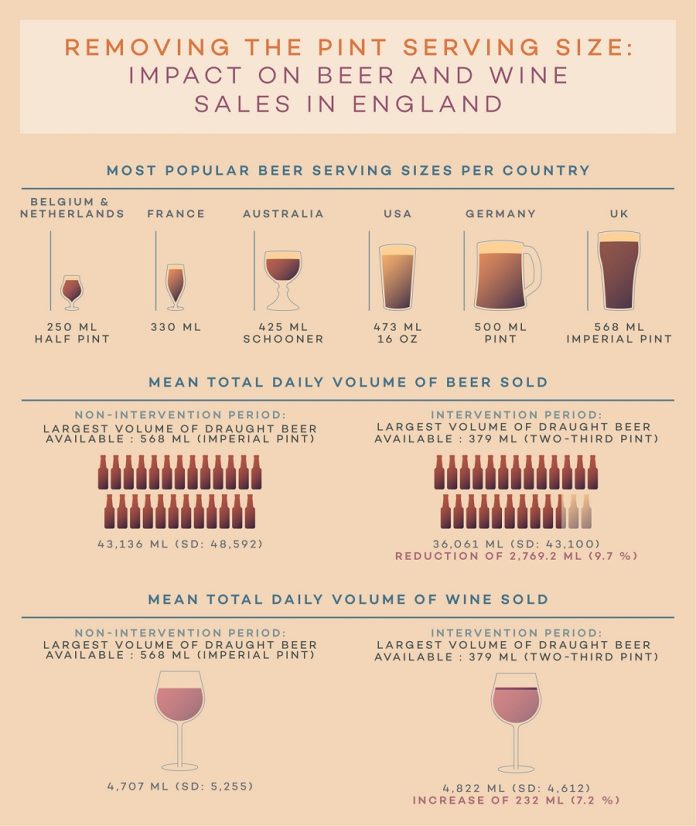
A new study has found that reducing the serving size of beer, lager, and cider can lead to a significant drop in how much people drink in pubs, bars, and restaurants.
The research, conducted by Theresa Marteau and her team at the University of Cambridge, showed that offering smaller servings instead of traditional pints reduced beer sales by almost 10%.
The study was published in the journal PLOS Medicine.
For the study, researchers asked venues in England to replace pint servings with smaller two-thirds pints for four weeks.
This period was compared to the four weeks before and after when pints were available again.
The results showed that the average daily volume of beer, lager, and cider sold decreased by 9.7% when smaller servings were the only option.
Interestingly, the study also found a slight increase in wine sales during the period when beer servings were smaller, with one pub contributing to half of this increase. However, most customers did not complain about the change in serving size.
While this study involved only 12 venues, and fewer than 1% of the places approached agreed to participate, the findings suggest that reducing drink sizes could be a helpful strategy to lower alcohol consumption.
The researchers believe this could be an effective tool for alcohol control policies, potentially reducing the risks of several diseases, including cancer.
The study’s authors highlight that smaller serving sizes have already been shown to reduce wine consumption and suggest this method could work for other alcoholic drinks as well.
While more research is needed to see if people compensate by drinking other types of alcohol, this approach shows promise for improving public health by encouraging people to drink less alcohol.
If you care about health, please read studies about how alcohol affects liver health and disease progression, and even one drink a day could still harm blood pressure health.
For more health information, please see studies that your age may decide whether alcohol is good or bad for you, and people over 40 need to prevent dangerous alcohol/drug interactions.



